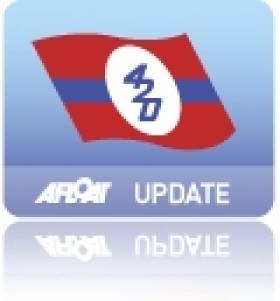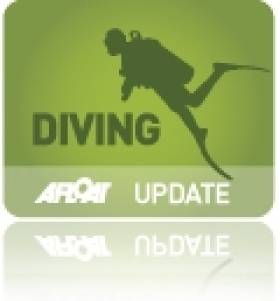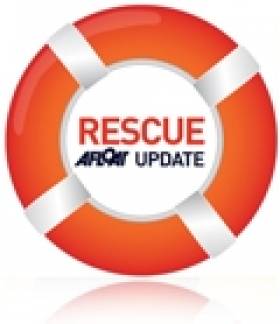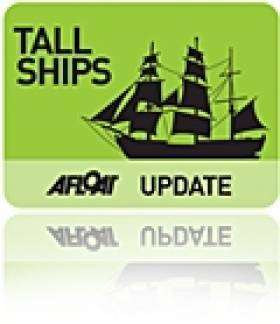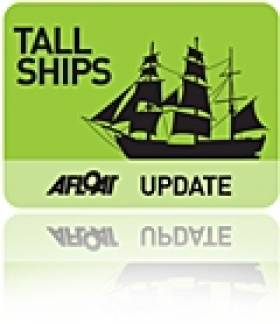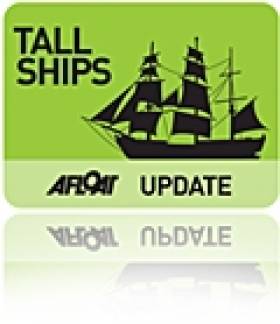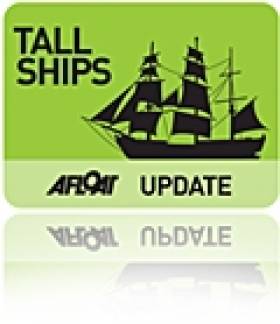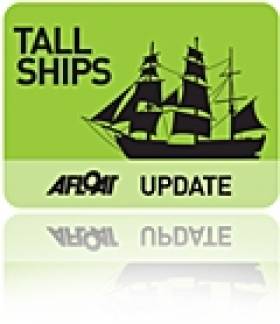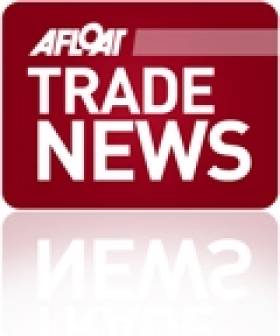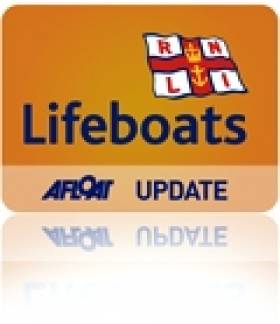Displaying items by tag: training
420 Class Releases Instructional Video
The International 420 Class Association has launched a free online Training Video (scroll down for video) to provide coaching and training tips for both the beginner and experienced 420 sailors. Sailors are always looking for ways to improve their sailing techniques, improve manoeuvres and get the most out of the time spent on the water and this online resource is set to provide a significant step towards this objective.
The International 420 Class dinghy is an ISAF International Class and two-person dinghy for young sailors. The 420 is an established worldwide performance two-person trapeze and spinnaker racing dinghy and the world's top youth training boat, which is used as the selected equipment at the ISAF Youth Sailing World Championships - offering the perfect pathway from youth to Olympic sailing.There are 56,000 420 dinghies worldwide, sailed at school, club, open, national and international levels. There are many second hand boats available, active clubs and excellent tuition for all levels. In April a brother and sister Patrick and Chloe Crosbie from Royal Cork Yacht Club won the Irish 420 title. In July Emma Geary and Niamh Connolly will represent Ireland at the ISAF Youth Worlds in the Girls Division, racing a 420.
José Massapina, 420 Class Vice-President responsible for the 420 Development Programme commented, "Training and improving techniques can be challenging and this instructional video is a bit like having your own personal video coach to help you get faster and talk you through skills and tactics." Recognizing the input from the partners involved, Massapina added, "We are delighted to have produced the video which has been a major project for the class and I am confident it will benefit many young sailors around the world. Our thanks to Nick Drougas, the Greek sailors sailing and demonstrating the techniques and Icarus who have produced the video."
This is the first specific training video produced by the International 420 Class Association and introduces a range of specific techniques, and demonstrates how to master them in different wind and sea conditions and what to consider when undertaking a range of manoeuvres.
"If you get your technique right you'll be efficient, produce better results and avoid potential injuries." explained Nick Drougas the world class coach behind the video. "Boat set up is explained, alongside body and boat movement. The commentary and visual presentation provide an easily understood training tool. Watch the video, go out and practice, review your day's sailing and improve your skills." he added.
Animated graphic overlays demonstrate specific points to consider in completing manoeuvres, accompanied by an excellent voice over. Designed to help sailors improve their skills and sail their boats better, the video provides a free and excellent resource for 420 sailors around the world. Coaches can also benefit from the video and look at new approaches to training and coaching.
Developed by the International 420 Class Association in partnership with Nick Drougas and Icarus – the training video is broken down into easily digestible sections, which you can view as separate video clips. The video focuses on:
Preparation and General Skills
Lightwinds
Medium Winds
Strong Winds
In addition to the English version, the videos are also available to download in French, Spanish and German. If ISAF MNAs or 420 National Class Association would like a translation of the video into any other languages please contact José Massapina on: [email protected]
Brady Feels At Home in the Water
Irish musician Paul Brady has confessed to a second love - scuba diving.
The 'Nobody Knows' hitmaker explained to The Irish Times how he had "always felt at home in the water" since a young age, and did his first diving course in 1988.
But frustrated by diving's weather dependancy here, he started going abroad - beginning in the Red Sea in the late 1980s before taking in the world's top diving spots, from Hawaii to the Cayman Islands and Australia.
Brady says he prefers to dive in private groups "off the beaten track" as commercial operators don't often visit the best sites - citing the Great Barrier Reef as an example.
As an experienced diver, he's has his fair share of bumpy moments down below, such as getting caught in a down draght in the Red Sea near Ras Mohammad - but says his training made all the difference.
As for why he loves diving? "It's a bit like floating in air," he says.
Read more of the Irish Times' interview with Paul Brady HERE.
Flood Evacuation Exercise in Fingal This Weekend
Members of the public are invited to attend a major flood evacuation training exercise this Saturday at Broadmeadow Esturary in Swords, Co Dublin.
Rescue and boat rescue crews from the Irish Coast Guard are sceduled to join teams from the Dublin Fire Brigade, the Civil Defence Fire Service and Gardaí in the exercise, which will simulate the rescue of a group of people stranded after a flash flood.
The crews will test water rescue and river search procedures, with an emphasis on general water safety and providing assistance to other search and rescue agencies.
The excercise will begin at 11am on Saturday 16 April and will last for one hour. Members of the public are welcome to observe must must obey any instructions and must not interefere with the exercise.
For more information contact Bill Powderly, assistant chief Civil Defence officer with responsibility for the Fingal Area, at [email protected] or 086 380 5197.
Asgard II's wheel and bell look like new again following their recovery from the sunken Irish sail training brigantine. Unlike 2005, Asgard won't be sailing in this year's Tall Ships race when it calls to Waterford but one suggestion doing the rounds is that the shiny bell should sound the start of the race from Waterford on July 3. It's a nice idea, certainly a lot nicer than rotting on the French seabed or sitting on a shelf in the Office of the Receiver of Wrecks. Let us know what you think in our poll on the left hand column.
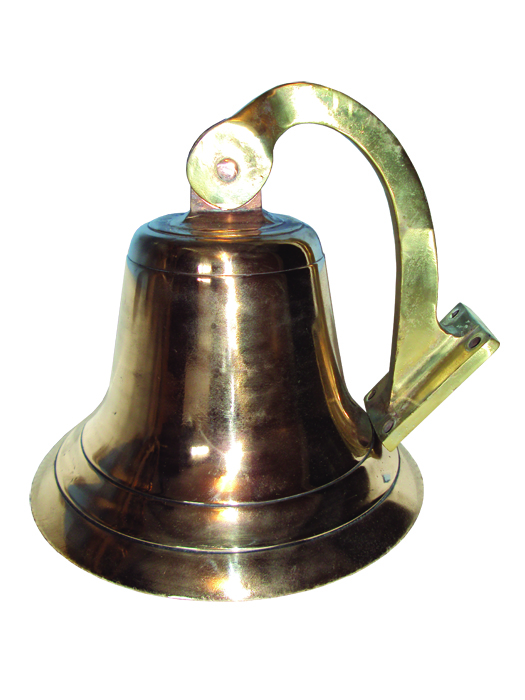
Back from the deep: Asgard II's bell (above) and wheel look like new again. Should they have a place at the Tall Ships Waterford, vote in our reader poll!
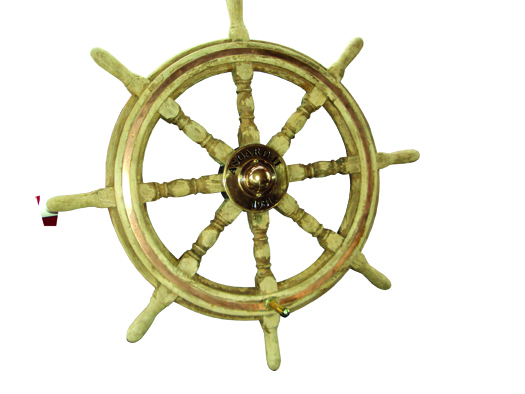
Sail Training Ireland to be Launched Next Week
Since the Department of Defence declared they no longer had an interest in sponsoring the continuation of the Asgard Sail Training Programme, and the subsequent decision of the Board of Asgard to wind up the Company, a working group supported by the ISA has worked to establish a National Sail Training Association.
Sail Training Ireland for Youth Development Ltd. has been established as a limited company recognised by Sail Training International as the representative body for Sail Training activities in Ireland.
An objectives of the organisation is to promote the development and Education of young Men and Women on the Island of Ireland in and through the Sail Training Experience regardless of Nationality, Culture, Religion, Gender or Social Background.
West Cork School Offers Temporary Tall Ship Sloop Solution
"There was fantastic energy at the Tall Ships workshop and while it was agreed that Ireland would benefit tremendously from an iconic square rigger tall sihip, this will take some to bring to fruition.
In the meantime, we are can look to existing Tall Ships operating with Irish Flag to offer the great experience that Sail Training can offer. Rohan MacAllister, previously captain of Asgard II for 10 years attended the meeting with Gail & Niall MacAllister of West Cork Sailing Centre to present Cypraea as a marvelous tall ship sailing sloop that is equipped to provide sail training on our Irish waters this summer.
The attendees of the meeting congratulated the MacAllisters on their tenacity and determination in bringing their sail training vessel to our waters and making the "Sail Training Experience" accessable for teenagers and adults this summer by dedicating July to Teenage Sail Training 5 day adventure sails for 350 euro and August to Adults at 450 euro.
Cypraea is a 23.5m steel sloop with berths for 10 at present and plans to increase to 16. She has three sails and is an extremely hands on team work sailing experience.
West Cork Sailing have been providing ISA and RYA sailing for many years and are excited to be providing Sail Training and the amazing life changing opportunity that it can bring".
Looking for further reading on Tall Ships in Ireland? Click the links below:
Click this link to read all our Tall Ships Stories on one handy page
Previewing Ireland's Tall Ships 2011 Season
Can Ireland Get a New Tall Ship?
Dubin's Lord Mayor opened a Tall Ship and Youth Sail Training Workshop with an agenda to seek a solution to the current Irish Sail Training impasse caused by the loss of sailing's Asgard II and Lord Rank.
Over 70 delegtes including many of the 'top brass' of the Irish Tall Ship commuunity attended the meeting held at the offices of Dublin Port Company on Saturday (26th March). The meeting inlcuded members of Coiste an Asgard, port companies, education, tourism and other sailing interests.
The meeting was formally opened by Dublin Lord Mayor and Port Admiral, Gerry Breen who introduced the chairman Lord Glentoran and the Facilitator Michael Counahan.
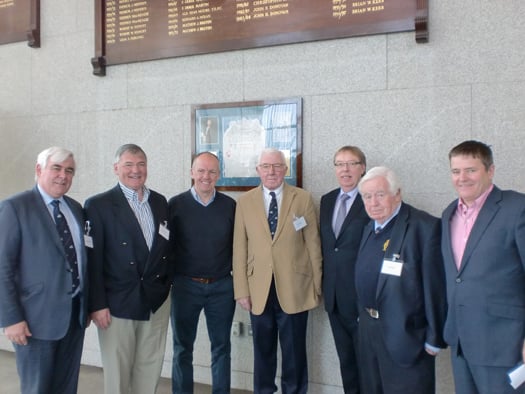
From (Left to right) Seamus McLoughlin, Dublin Port Head of Operations, Enda Connellan, Chairman Tall Ships Dublin 2012, Des Whelan, Chair Tall Ships Waterford 2011, Lord Glentoran (Robin Dixon) Chair Tall Ships Belfast 1992, Dr. Gerard O'Hare, Chair Tall Ships Belfast 2009, Ted Crosbie, Tall Ships Cork and Enda O'Coineen, LetsdoitGlobal.
Des Whelan gave an excellent talk and presentation on Tall Ships Waterford which was followed by a discussion on the massive economic benefits of bringing Tall Ships Festivals To Dublin, Cork and Belfast. Chairman of Tall Ships Dublin 2012 Enda Connellan and Ted Crosbie of Tall Ships Cork and Dr. Gerard O' Hare of Tall Ships Belfast discussed the incredible success stories from their respective ports festivals.
Several presentations and discussions followed regarding the role of Tall Ships in Sail Training, the connection between a vessel for Ireland and running events here. The question of who are the stakeholders and how can benefits be quantified was also discussed.
The meeting was hosted by Dublin Port Company who provided a warm welcome, excellent facilities, refreshments and a wonderful lunch with senior management attending to everyone's needs.
After lunch there were further discussions on what is the most suitable vessel, who should run the organisation and what would work best for Ireland.
Jimmy Tyrrell gave a short, eloquent and emotional account of Asgard II and the realisation of his father's dream which was fulfilled beyond all expectation by that legendary vessel and those who were privileged to sail on her. He affirmed his own belief that the way forward was with an All-Ireland Tall Ship and even suggested that she be called Spirit of Ireland. There were other suggestions for a name inlcuding 'Ireland's Call'.
A view was also expressed that politics and religion have no place in Sail Trail Training and the future lay in an All-Ireland Commercial/Charitable Trust Venture.
The prohibitive nature of current legislation and the total lack of awareness of the maritime sector by the Government was mentioned several times.
Ocean Youth Club NI provided four young sail trainees to address the gathering on the benefits of Sail Training from their perspective and representatives from education, tourism Tall Ships International and "Association Of Tall Ships Organisations" also contributed.
The general consensus was the need to develop and promote, as a matter of urgency, a plan for a Tall Ship For Ireland linking Youth, Maritime Education, Business and Tourism.
Another workshop will be held in Belfast in April and the collective input of both meetings will be considered going forward.
A Tall Order for Ireland? HERE
Regular updates on Irish Tall Ship sailing news HERE
More on Asgard II HERE
Tall Ship Interests Plan Replacement for Asgard II
Ireland could yet have a Tall ship to replace the Asgard II and the Lord Rank, if a new sailing group formed to press for a replacement is successful. The news is in this morning's Irish Times newspaper. Groups representating different interests from maritime to tourism to economic are getting together for a special conference on March 26th in Dublin Port. The full Irish Times story is HERE. Next week in Afloat magazine's March/April issue an article called 'Tall Order for Ireland' gives all the details on the conference. It includes a 'call for contributions' from key stakeholders who would support a Tall Ship for Ireland. More details HERE. And in a separate article WM Nixon looks at the realities of national sail training in the 21st Century. This new move on a replacement seems to have entirely appropriate timing; Asgard II was commissioned in Arklow 30 years ago this week, on March 7, 1981.
Looking for further reading on Tall Ships in Ireland? Click the links below:
Click this link to read all our Tall Ships Stories on one handy page
Previewing Ireland's Tall Ships 2011 Season
Can Ireland Get a New Tall Ship?
City Powerboat School on the Market
Due to an opportunity for its owners overseas Dublin City's only powerboat training school, City Powerboat School is on the market. The Irish Sailing Association recognised training establishment is advertised in next week's edition of Afloat magazine. The school operates in the 'highly visible' River Liffey area. School principal Felix Finlay says 'the position of the school in Dublin City has attracted many enquiries, for not only powerboat training courses, but sail training, tourism activities, and educational opportunities'. More here.
Dramatic Photos of Clifden Lifeboat Battling Surf
John organised the training in response to the increased popularity of the area with surfers. RNLI Divisional Assessor Trainer Helena Duggan travelled to the lifeboat station to put 18 volunteer lifeboat crew through their paces and train them in handling the lifeboat in surf and responding to potential callouts from leisure marine enthusiasts.
Training is a core part of volunteering with the RNLI and each crewmember in Clifden trains once a fortnight on the stations two inshore lifeboats.
Commenting on the exercise John said, "I took my camera down to photograph the exercise and was really pleased with the results. It is great to be able to show the public what our lifeboat volunteers go through to ensure they are fit and trained to go to sea. We had a fantastic turnout on the day and the lifeboat crew learned about boat handling in surf conditions. We are delighted so many people are visiting the area for leisure marine activities."
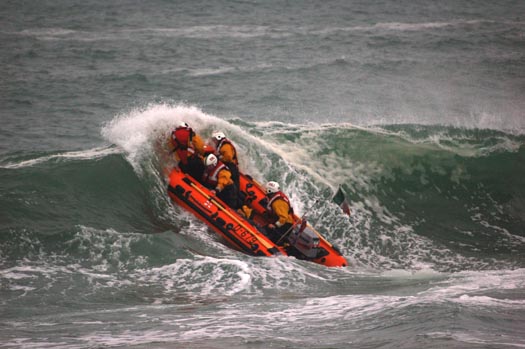
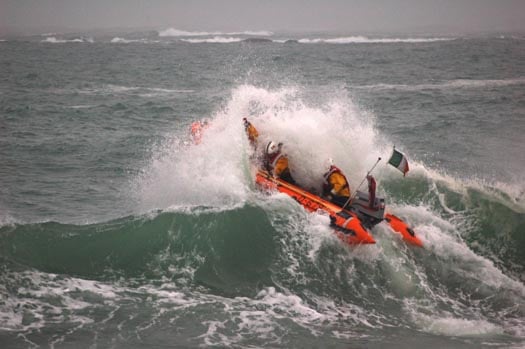
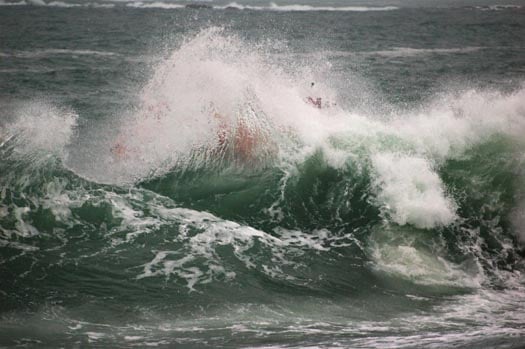
Photos by John Brittain/Clifden RNLI show Clifden volunteer lifeboat crew with RNLI Training assessor Helena Duggan during surf training on Dunloughan beach, Ballyconeely
Related Safety posts
RNLI Lifeboats in Ireland
Safety News
Rescue News from RNLI Lifeboats in Ireland
Coast Guard News from Ireland
Water Safety News from Ireland
Marine Casualty Investigation Board News
Marine Warnings


























